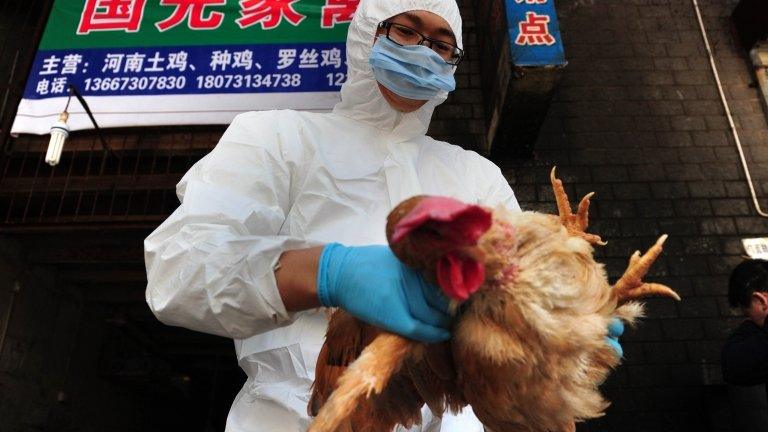KFC owner Yum cuts profit outlook on China food scare
- Published
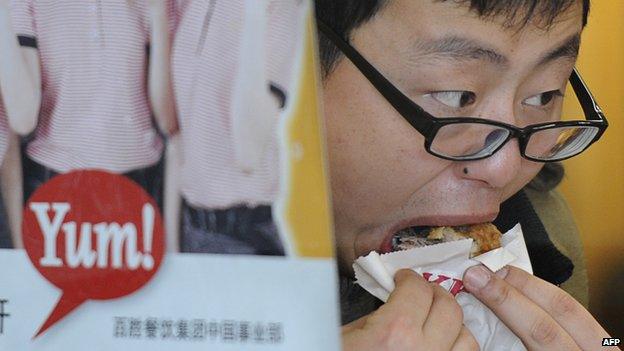
Yum Brands is the largest foreign restaurant chain operator in China and runs more than 6,400 outlets
Yum Brands, the US owner of fast food chains KFC and Pizza Hut, cut its full-year profit forecast after a second food scare hurt its sales in China.
The firm now expects earnings per share to increase up to 10% this year, compared to its previous projection for growth of at least 20%.
The revised projection comes as sales in China slumped 14% in the last quarter, after a former supplier was accused of selling expired meat.
Yum shares closed 2.3% lower in the US.
Yum runs more than 6,400 restaurants in China, making it the largest foreign restaurant chain operator in the country.
China is also Yum's biggest market - it makes about 75% of its revenue from its operations there.
Its profit more than doubled to $404m (£251m) in the last three months, which was higher than analyst estimates.
However, revenue missed forecasts, falling 3.2% in the third quarter to $3.35bn.
Yum said the latest food scare had "shaken consumer confidence and impacted brand usage".
"While sales are rebounding, they continue to be negative," Yum said in a statement. , external
"It is difficult to confidently forecast the exact trajectory of China sales. In our experience, sales typically take six to nine months to recover from these types of events."
Food scares
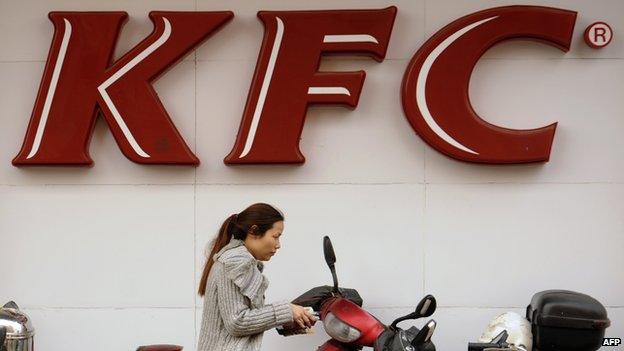
KFC has seen sales in China slump after two high-profile food scares involving its suppliers
There have been a range of food scares in China in recent years, ranging from tainted milk to gutter oil being recycled and sold.
As a result, Chinese consumers have traditionally flocked to Western restaurants such as KFC because they were deemed safer to eat at.
However, two food scares - the first in December 2012 - and a bird flu outbreak have hurt Yum's profits.
Earlier this year, it cut ties with meat supplier Shanghai Husi and its parent company, OSI Group, after a local television report accused it of altering expiration dates and selling old meat.
Yum said it would take legal action against both companies.
The US-based fast-food giant has also been struggling to maintain market share in its home country, and has unveiled new menu options at Taco Bell to attract consumers.
Its Pizza Hut brand has also resorted to offering large discounts.
Yum is now looking to expand into emerging markets in Latin America and Africa. This year, it opened its first KFC outlets in Bolivia and its first Pizza Hut in South Africa.
On its website, Yum says it has opened over five new restaurants per day outside of the US.
- Published4 August 2014
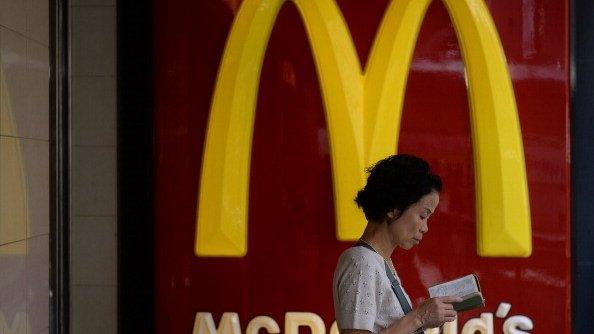
- Published24 July 2013
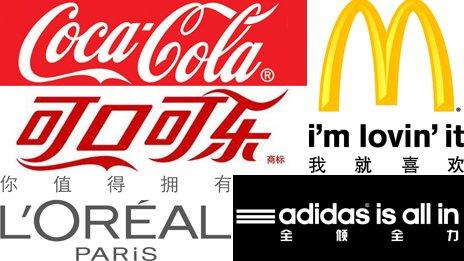
- Published17 July 2013

- Published12 April 2013
